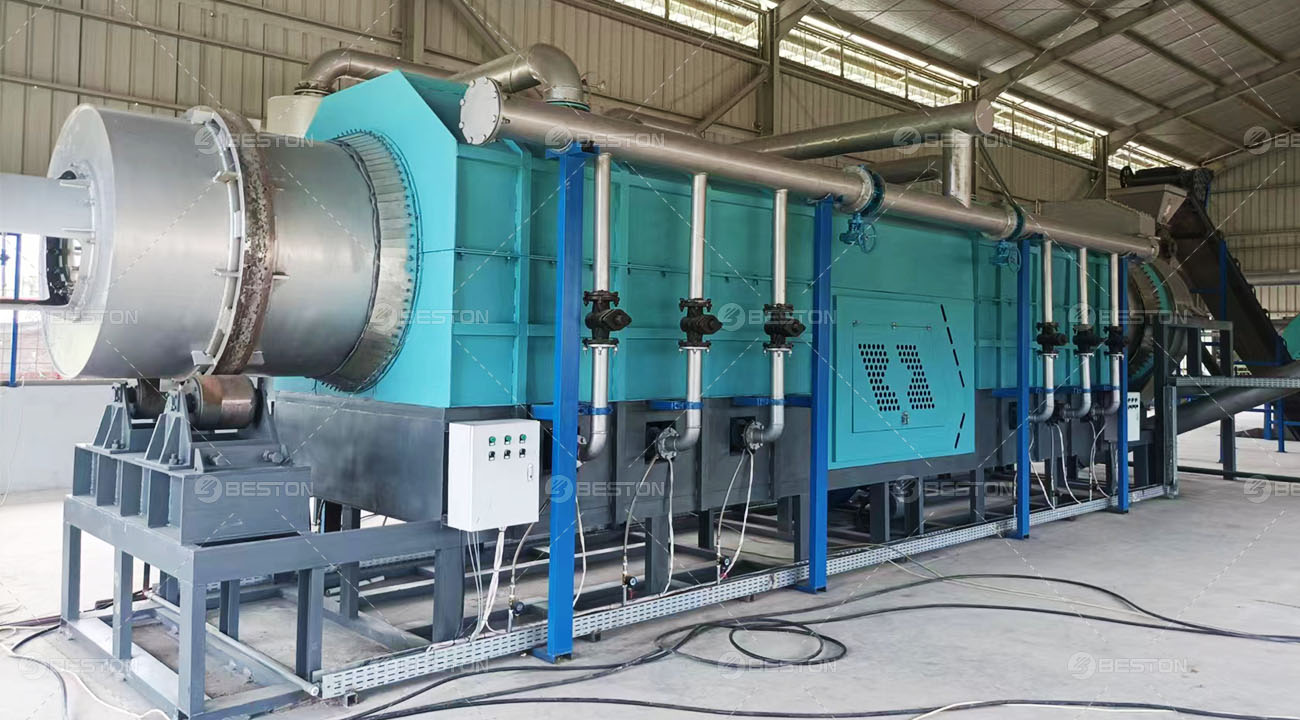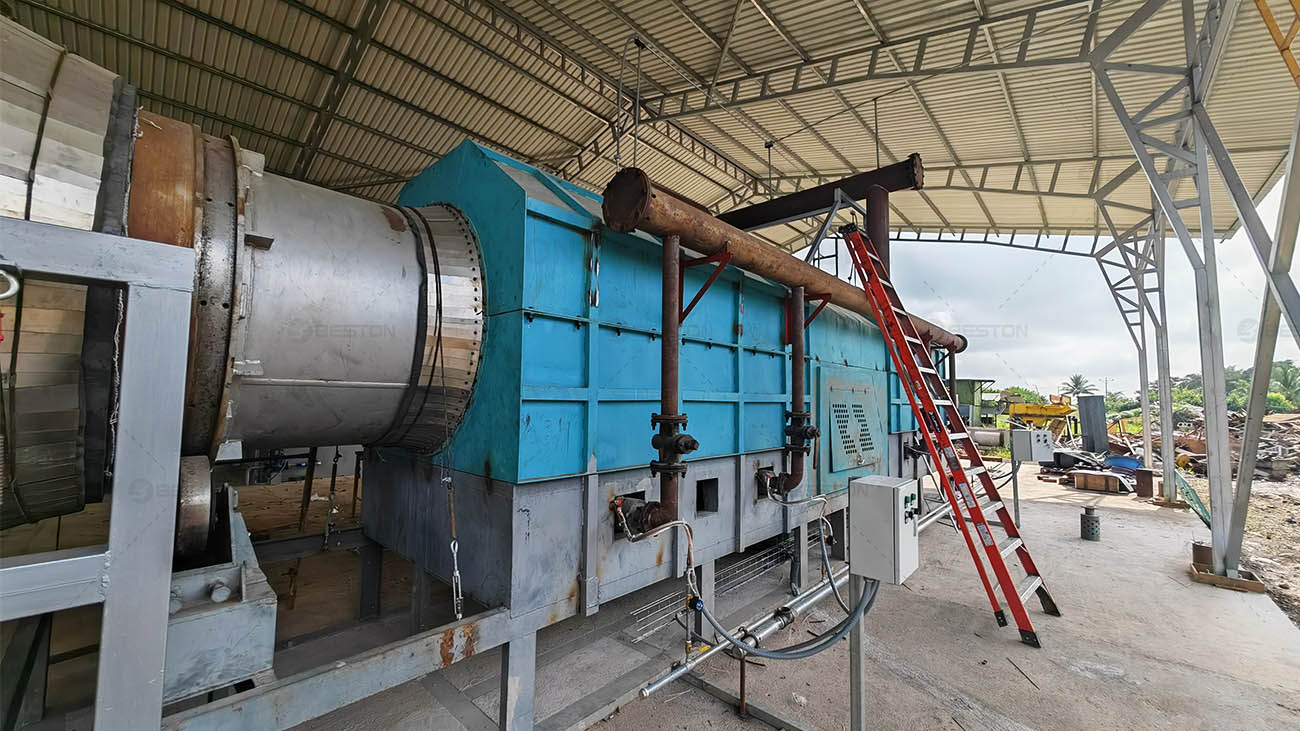Coconut shell charcoal production is gaining momentum as a sustainable solution for waste management, energy production, and environmental conservation. The use of a coconut shell charcoal making machine converts an abundant agricultural byproduct into high-quality charcoal, which has multiple industrial applications. Selecting suitable regions for developing these projects is critical, as it influences both the economic viability and environmental sustainability of the venture. Several factors must be considered when identifying ideal locations, such as the availability of raw materials, infrastructure, market demand, and regulatory support.

Regions with High Coconut Production
The foremost consideration when determining the suitability of a region for developing a coconut shell charcoal project is the availability of raw materials. Regions with abundant coconut production offer a stable and consistent supply of coconut shells, the primary feedstock for charcoal production. Countries such as Indonesia, the Philippines, India, and Sri Lanka are global leaders in coconut production, accounting for more than 70% of the world’s supply. These regions present significant potential for establishing coconut shell charcoal projects due to the continuous availability of raw materials.
Southeast Asia
Southeast Asia, particularly Indonesia and the Philippines, is an ideal region for developing coconut shell charcoal projects. These nations boast expansive coconut plantations, where millions of tons of coconut shells are generated as agricultural waste each year. The proximity to these sources drastically reduces transportation costs, enhancing the economic feasibility of operating a charcoal machine. Additionally, the growing interest in sustainable energy solutions across Southeast Asia has fostered a favorable regulatory environment for renewable energy projects, including charcoal production.
In these regions, charcoal produced from coconut shells is not only used domestically but also exported to meet the increasing global demand. Charcoal exports from Southeast Asia are particularly in demand for applications such as water filtration, activated carbon production, and use in the metallurgical industry.
South Asia
India and Sri Lanka also offer significant opportunities for coconut shell charcoal projects. As major coconut-producing nations, both countries have vast quantities of coconut shells available for conversion into charcoal. The rural areas of India, particularly Kerala and Tamil Nadu, are particularly well-suited for such projects due to their extensive coconut cultivation and government initiatives promoting agro-industrial projects.
Moreover, India’s booming industrial sector, with its focus on renewable energy and eco-friendly solutions, provides a large domestic market for coconut shell charcoal. The availability of a coconut shell charcoal briquette making machine in rural regions not only enhances resource utilization but also contributes to local economic development by providing job opportunities in underdeveloped areas.
Proximity to Industrial Hubs
Regions near industrial hubs or manufacturing zones are prime locations for developing coconut shell charcoal projects. Coconut shell charcoal is widely used in the metallurgical industry, particularly in the production of iron and steel. Industrial regions in countries such as China and India, which have robust manufacturing sectors, offer significant demand for coconut shell charcoal.
China
While China is not a major producer of coconuts, it remains one of the largest importers of coconut shell charcoal due to its extensive industrial base. Industrial regions in China, such as Guangdong and Jiangsu, have a high demand for activated carbon and metallurgical-grade charcoal, both of which can be produced using a coconut shell charcoal machine. Establishing coconut shell charcoal projects in regions close to these industrial hubs can reduce logistical costs and improve access to a consistent market for charcoal products.
Middle Eastern Markets
The Middle East, though not traditionally associated with coconut production, is an emerging market for coconut shell charcoal, particularly in countries like the UAE, Saudi Arabia, and Qatar. These regions have significant demand for activated carbon and biochar, which are used in various industries, including water treatment, oil refining, and construction. Furthermore, the Middle East is home to a large charcoal-based shisha market, where coconut shell charcoal is preferred for its high density and long burning time.
While the raw material may need to be imported from coconut-producing nations, the Middle East’s strategic location and strong logistics infrastructure make it an attractive region for establishing coconut shell charcoal projects focused on export markets. For more coconut shell recycling solutions, please consult Beston Group.
Environmental and Regulatory Factors
Beyond raw material availability and proximity to markets, environmental and regulatory considerations are crucial when selecting regions for coconut shell charcoal production. The use of a coconut shell charcoal machine contributes to waste reduction, renewable energy generation, and carbon sequestration. Countries and regions with strong environmental policies that incentivize green projects are therefore suitable for developing coconut shell charcoal ventures.
Latin America
Latin America, particularly countries such as Brazil, Mexico, and Colombia, has a growing interest in renewable energy projects. Coconut cultivation is prominent in coastal areas, particularly in Brazil’s northeastern region. With increasing environmental awareness and government support for sustainable projects, Latin America represents an untapped market for coconut shell charcoal production. The introduction of a coconut shell charcoal machine in these regions can promote waste valorization and provide cleaner energy sources.
Africa
Africa is another region with potential for biomass pyrolysis plant for sale, particularly in coastal nations such as Tanzania, Mozambique, and Ghana. While coconut production in Africa is not as extensive as in Southeast Asia, certain regions have an abundance of coconut shells that could be utilized. Moreover, several African nations are implementing policies to reduce deforestation and promote sustainable energy solutions, positioning coconut shell charcoal as an eco-friendly alternative to traditional wood-based charcoal.

Economic Viability and Infrastructure
Economic factors such as infrastructure, labor costs, and energy prices also play a pivotal role in determining the suitability of a region for developing coconut shell charcoal projects. A well-developed transportation network is essential for the efficient movement of raw materials and finished products. Regions with lower labor costs can also improve the profitability of charcoal production, while stable and affordable energy supply is necessary for running a coconut shell charcoal machine at optimal capacity.
Infrastructure in Asia
In Southeast and South Asia, infrastructure development has been a key focus for many governments. Regions with well-established road networks, seaports, and access to energy resources provide the logistical support needed to operate large-scale charcoal production projects. Indonesia, for example, has seen significant investments in its infrastructure, particularly in rural areas, making it a prime candidate for expanding charcoal production capabilities.
Emerging Markets in Africa
In Africa, ongoing infrastructure development, particularly in East and West Africa, is opening new opportunities for establishing industrial projects, including coconut shell charcoal production. As governments continue to invest in roads, ports, and energy infrastructure, more regions are becoming viable for developing agro-industrial projects, including those focused on sustainable charcoal production.
Conclusion
The development of coconut shell charcoal projects offers significant economic and environmental benefits. Regions with abundant coconut production, such as Southeast Asia and South Asia, are prime candidates for these ventures due to their proximity to raw materials and growing demand for charcoal products. Industrial hubs in China and emerging markets in the Middle East and Africa also provide opportunities for expanding coconut shell charcoal production. Additionally, regulatory support for green energy projects and infrastructural development further enhance the viability of these projects in many regions. By utilizing a coconut shell charcoal machine, businesses and governments can turn agricultural waste into valuable, sustainable energy resources while contributing to carbon reduction efforts globally.